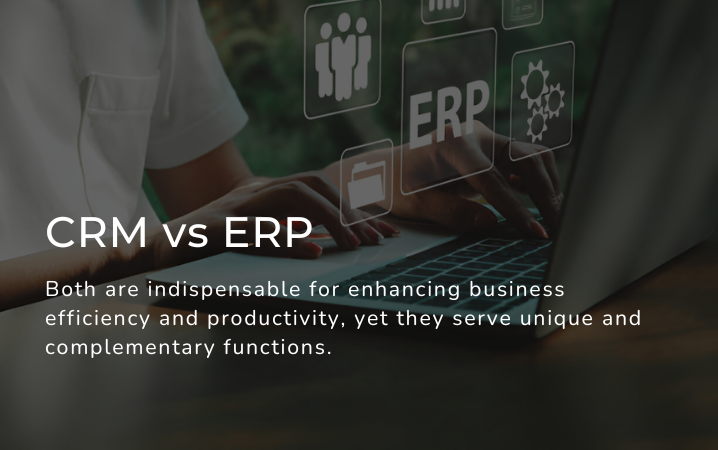
Understanding the key difference between CRM and ERP
In the ever-evolving world of business technology, two critical systems frequently take center stage: CRM (Customer Relationship Management) and ERP (Enterprise Resource Planning). Both are indispensable for enhancing business efficiency and productivity, yet they serve unique and complementary functions. Let's delve into the distinctions between CRM and ERP, and how each can play a pivotal role in propelling your business to new heights.
CRM
Customer Relationship Management (CRM) software serves as a vital tool for businesses aiming to efficiently handle interactions with both current and prospective customers. By consolidating customer information into a single platform, it simplifies marketing automation, optimizes sales processes, and elevates customer service quality. For businesses focused on strengthening customer relationships, boosting sales, and ensuring customer loyalty.
ERP
Enterprise Resource Planning (ERP) software is an integrated suite of applications that manage core business processes across various departments. ERP systems consolidate business operations such as finance, human resources, manufacturing, supply chain, and procurement into a unified system. The primary goal of ERP is to improve the efficiency and accuracy of business processes by providing real-time data and insights.
Choosing the right solution for your business
The choice between CRM and ERP depends on your business needs and goals. If your primary focus is improving customer relationships and boosting sales and marketing efforts, a CRM system is the way to go. However, if you need to streamline various internal business processes and improve operational efficiency across departments, an ERP system is more suitable.
In many cases, businesses benefit from using both CRM and ERP systems to cover all aspects of their operations. Integrated CRM and ERP solutions provide a comprehensive view of both customer interactions and internal processes, leading to better decision-making and overall business performance.
Understanding the differences between CRM and ERP is essential for making informed decisions about your business technology. Both systems offer valuable benefits, but their distinct functionalities and purposes mean they serve different needs. By choosing the right solution for your business, you can enhance efficiency, improve customer relationships, and drive sustainable growth.
